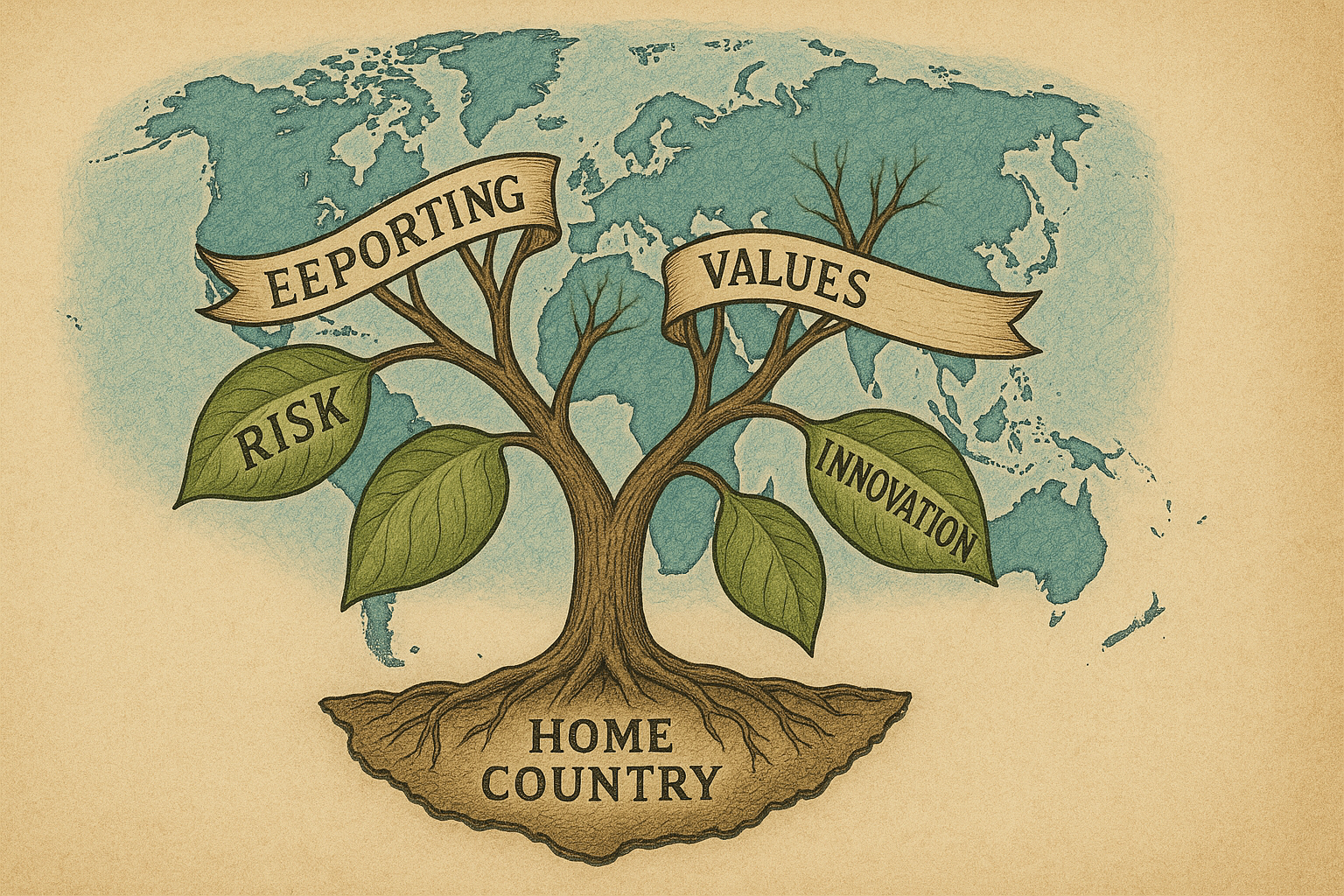How do family firms balance risk and opportunity in acquisition decisions?
Michele Pinelli, Francesco Chirico, Alfredo De Massis, Alessandro Zattoni
Audio > Play / Stop
CeFEO's Authors
CeFEO counts more than 50 scholars and 30 affiliated researchers. Several studies and reports have consistently identified CeFEO as a leading research environment worldwide in the area of ownership and family business studies.
This research project, has been co-authored by the following CeFEO Members.
Reference
Spotlight highlights research-based findings only. If you’re interested in exploring this project further or delving into the theoretical and methodological details, we encourage you to contact the authors or read the full article for a comprehensive understanding.

Pinelli, M., Chirico, F., De Massis, A., & Zattoni, A. (2023). Acquisition relatedness in family firms: Do the environment and the institutional context matter? Journal of Management Studies, 61(4).
https://doi.org/10.1111/joms.12932

What is Spotlight?
Spotlight is an innovative online family business magazine designed to bridge the gap between cutting-edge research and the real-world needs of practitioners, owners, and policymakers. Drawing on the latest findings from the Centre for Family Entrepreneurship and Ownership (CeFEO) at Jönköping International Business School, Spotlight delivers insightful, accessible summaries of key research topics. Our mission is to keep the family business community informed and empowered by offering actionable insights, expert analyses, and forward-thinking strategies that enhance business leadership and ownership practices for long-term success.

This article is brought to you by the WIFU Foundation
Spotlight is generously supported by the WIFU Foundation, which promotes research, education, and dialogue in the field of family business. This partnership enables us to continue bridging academic insights and real-world practice for the advancement of responsible family entrepreneurship and ownership.
Acquisition relatedness in family firms: the role of environmental uncertainty and institutional context
Family businesses face a unique challenge when it comes to acquisitions: How do you grow without risking the very essence of the family’s legacy? This study reveals that in uncertain environments, family firms lean towards related acquisitions to protect their socioemotional wealth. But when the institutional context is right, they aren’t afraid to dive into unfamiliar industries, unlocking new opportunities while safeguarding what matters most.
Family businesses face a unique challenge when it comes to acquisitions: How do you grow without risking the very essence of the family’s legacy? This study reveals that in uncertain environments, family firms lean towards related acquisitions to protect their socioemotional wealth. But when the institutional context is right, they aren’t afraid to dive into unfamiliar industries, unlocking new opportunities while safeguarding what matters most.
In the rapidly evolving world of business, acquisitions have become an essential tool for growth and survival. For family firms, however, these strategic decisions often carry more weight, with implications beyond financial gains. The choice between related and unrelated acquisitions—whether to buy a firm in the same industry or one in a different sector—poses unique challenges for family-controlled businesses. Family firms prioritize socioemotional wealth (SEW), which includes maintaining family control, reputation, and emotional connections with the business. As such, their acquisition behavior can differ significantly from nonfamily firms, particularly in uncertain environments and varying institutional contexts. Understanding these dynamics is crucial for family business leaders aiming to navigate acquisitions in a way that balances financial objectives with family priorities.
What We Studied
This study, conducted by Michele Pinelli, Francesco Chirico, Alfredo De Massis, and Alessandro Zattoni, explores the acquisition behavior of family firms, focusing on the role of environmental uncertainty and the institutional context. Drawing from the socioemotional wealth (SEW) perspective and the mixed gamble logic of the behavioral agency model, the research investigates why family firms prefer related acquisitions under certain conditions but opt for unrelated ones when environmental and institutional factors align favorably. The study is based on a sample of 1,014 international acquisitions by both family and nonfamily firms, analyzed to uncover patterns in acquisition relatedness and the influence of external environments.
Key Insights
1. Family Firms Prefer Related Acquisitions in Uncertain Environments
Family firms exhibit a strong preference for related acquisitions—those within the same industry—when operating in uncertain environments. This behavior stems from the desire to protect socioemotional wealth. The study argues that under uncertainty, the risks of losing SEW, such as family control and reputation, loom larger than potential financial gains from unrelated acquisitions. By acquiring related firms, family businesses minimize the risks to their current SEW while maintaining operational continuity.
2. Unrelated Acquisitions Are Viable in Developed Institutional Contexts
In contrast, when family firms face uncertainty but the target operates in a more developed and similar institutional context, the risk of financial loss diminishes. This reduction in financial uncertainty makes unrelated acquisitions—those outside the firm’s core industry—more attractive. The study found that in these scenarios, family firms are more willing to take on the risk of SEW loss for the potential financial benefits that can arise from unrelated acquisitions in stable, well-regulated environments.
3. Family Firms’ Acquisition Behavior Is More Complex Than Nonfamily Firms
Unlike nonfamily firms, which primarily focus on financial outcomes, family firms must balance financial risks with SEW considerations. The study highlights that family firms’ acquisition decisions are influenced by a broader array of risks, including external environmental factors and institutional contexts. Nonfamily firms, on the other hand, are more likely to pursue acquisitions based solely on financial considerations, regardless of the relatedness of the target firm.
Takeaways
1. Prioritize Related Acquisitions in Uncertain Markets
Family business leaders should prioritize acquisitions in related industries when facing uncertain environments. This strategy helps safeguard the family’s socioemotional wealth while minimizing operational and financial risks. By staying within their core competencies, family firms can better manage external volatility without jeopardizing their long-term family-centered goals.
2. Leverage Institutional Context for Diversification
In cases where diversification through unrelated acquisitions is necessary, family firms should carefully evaluate the institutional context of the target market. When operating in a more developed and familiar institutional setting, family firms can reduce the financial risks associated with unrelated acquisitions, making them more viable. Family business leaders should ensure that they understand the institutional landscape of the target firm to make informed decisions.
3. Balancing SEW and Financial Gains
Family firms should recognize that their unique sensitivity to socioemotional wealth can limit their willingness to diversify into unrelated sectors. However, when the institutional context is favorable, the potential financial gains may justify taking on the additional SEW risks. Business owners should carefully weigh these factors when making acquisition decisions.
Impact
The study underscores the importance of considering both environmental uncertainty and institutional context in the acquisition strategies of family firms. While family firms tend to shy away from unrelated acquisitions due to SEW concerns, favorable external conditions can mitigate financial risks, making diversification more appealing. This nuanced approach to acquisitions highlights the need for family firms to integrate both financial and emotional considerations in their decision-making processes.
As family firms continue to play a critical role in the global economy, understanding how they can balance socioemotional wealth with financial growth is essential for their long-term success. Future research could explore how other external factors, such as cultural differences and regulatory environments, further shape acquisition behaviors in family businesses.
Recommendations
Family business leaders are encouraged to carefully assess the external environments and institutional contexts before making acquisition decisions. By doing so, they can protect their socioemotional wealth while still pursuing strategic growth opportunities. Additionally, family firms should consider building stronger internal capacities to evaluate the risks and benefits of unrelated acquisitions in favorable institutional settings.

CeFEO's Authors
CeFEO counts more than 50 scholars and 30 affiliated researchers. Several studies and reports have consistently identified CeFEO as a leading research environment worldwide in the area of ownership and family business studies. This research project, has been co-authored by the following CeFEO Members.
Reference
Spotlight highlights research-based findings only. If you’re interested in exploring this project further or delving into the theoretical and methodological details, we encourage you to contact the authors or read the full article for a comprehensive understanding.

Pinelli, M., Chirico, F., De Massis, A., & Zattoni, A. (2023). Acquisition relatedness in family firms: Do the environment and the institutional context matter? Journal of Management Studies, 61(4).
https://doi.org/10.1111/joms.12932

What is Spotlight?
Spotlight is an innovative, AI-powered, online family business magazine designed to bridge the gap between cutting-edge research and the real-world needs of practitioners, owners, and policymakers. Drawing on the latest findings from the Centre for Family Entrepreneurship and Ownership (CeFEO) at Jönköping International Business School, Spotlight delivers insightful, accessible summaries of key research topics. Our mission is to keep the family business community informed and empowered by offering actionable insights, expert analyses, and forward-thinking strategies that enhance business leadership and ownership practices for long-term success.

This article is brought to you by the WIFU Foundation
Spotlight is generously supported by the WIFU Foundation, which promotes research, education, and dialogue in the field of family business. This partnership enables us to continue bridging academic insights and real-world practice for the advancement of responsible family entrepreneurship and ownership.










